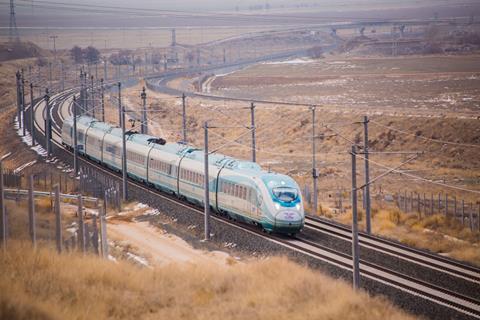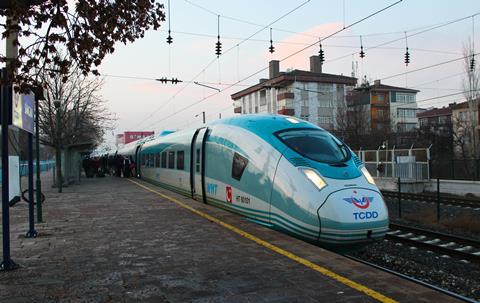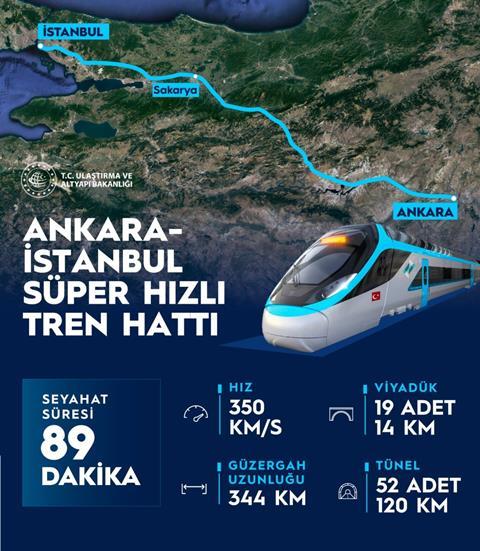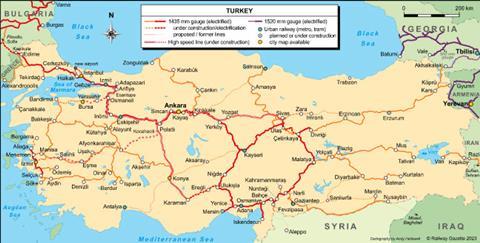
TURKEY: Transport Minister Adil Karaismailoğlu announced on April 14 that the government is planning a ‘super high speed’ railway between Istanbul and Ankara. Services would link the country’s political and economic capitals in just 1 h 29 min compared with today’s fastest timing of 4 h 5 min over the existing 533 km high speed route built in 2008-14.
The 344 km route would diverge from the existing Istanbul – Ankara high speed line at Adapazarı and run via Sakarya and through the Bolu mountains to Nallıhan and Ankara. Designed for trains to run at a maximum speed of 350 km/h, the line would require construction of 52 tunnels with a total length of 120 km and 19 viaducts with a combined length of 14 km.
Plans for a direct high speed line between Haydarpaşa on the Bosporus and Ankara were first put forward in 1972 when a 280 km cut-off was proposed between Arifye and Sincan. This would have shortened the trip between the two cities by 118 km. Although work on this scheme was started, the job was never completed. Only in 2005 were contracts let for the existing high speed route via Eskisehir, with the first section opening four years later.

Karaismailoğlu also indicated that the 405 km Ankara – Sivas high speed line is due to open on April 26, with TCDD’s Yüksek Hizli Tren high speed services completing the trip in around 2 h compared with around 12 h at present over the existing route via Kayseri. Opening of the new line has been proclaimed on several occasions in the past, but there has been a long series of delays, most recently relating to service and evacuation tunnels near Yıldızeli. The line has been under construction since 2008.

Karaismailoğlu’s announcements come ahead of the presidential and parliamentary elections on May 14. Even if the government were to change, transport policy is unlikely to veer dramatically away from that being pursued by the present regime. Back in January the six opposition parties issued a joint document outlining common policies that included a commitment to develop ‘modern rail and metro systems’ for both ‘urban and inter-city passenger and freight transport’.
The document also called for the establishment of a ‘Railway Regulation & Supervision Agency’ whose roles would include training of personnel, drawing up safety standards for rail vehicles and related matters.


















